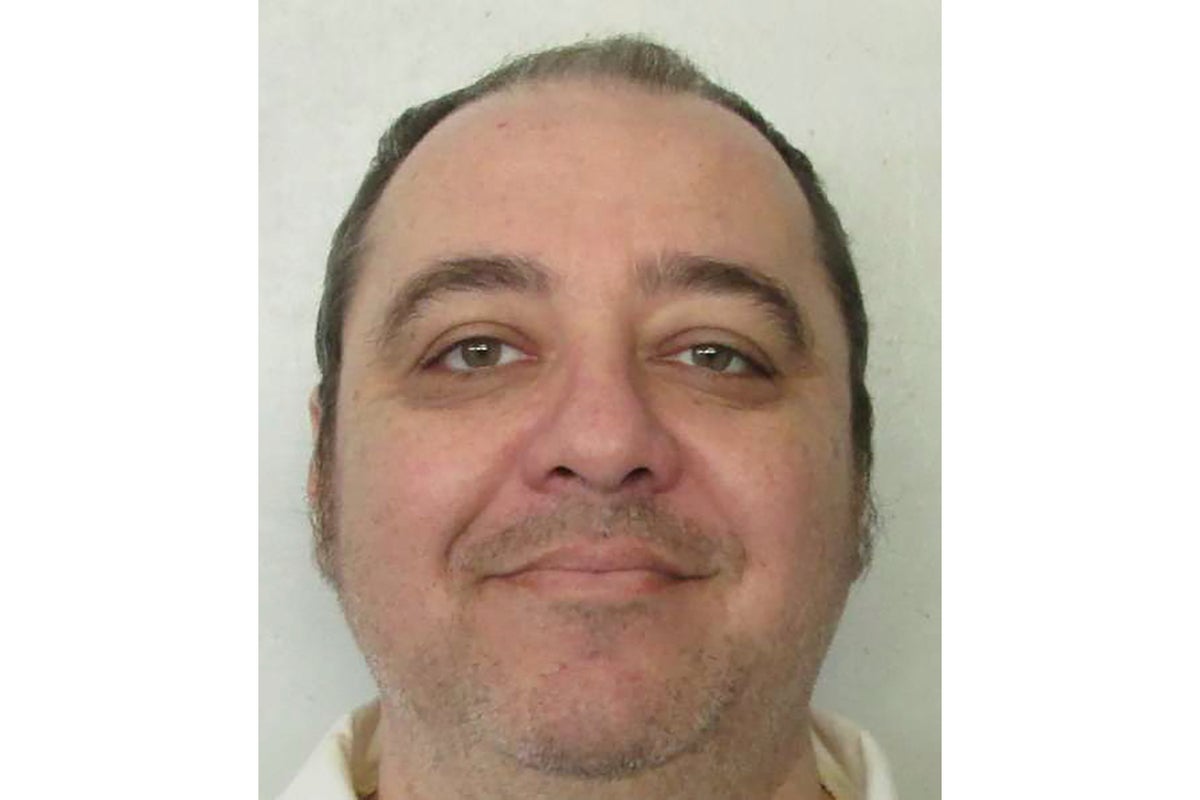
Kenneth Eugene Smith is a member of strange and horrific club: people Alabama has attempted to execute, but failed to do so in time. Its membership grew last year, with the state failing on two separate attempts to successfully complete a death sentence.
The convict is now scheduled to be put to death with nitrogen gas at 6pm on Thursday 25 January at the William C Holman Correctional Facility in Atmore after both the US Supreme Court and a federal appeals court declined to intervene to prevent his execution.
Smith, given a death sentence for his role in the 1988 murder-for-hire of pastor’s wife Elizabeth Dorlene Sennett, was previously scheduled to be executed on 14 December.
With legal appeals still pending that night, Alabama began to prepare Smith for his execution, struggling for over an hour to place an IV line that would deliver his lethal injection drugs.
At 10.23pm, the US Supreme Court rejected his final appeal, clearing the way for his execution.
At this point, he had been strapped to a gurney for multiple hours. As prison personnel continued to struggle to place an IV, jabbing Smith’s arm, hand, neck and chest with large needles.
An hour later, state officials called off the execution entirely, believing they would not be able to complete it by the midnight deadline of Smith’s death warrant.
Smith, who subsequently entered litigation with the state of the Alabama because of the botched execution, told The Atlantic the experience was “like a knife” and that he told prison officials over and over again that he was feeling pain, even though he was supposed to have been fully anesthetised.
“I kept telling them call the f***ing judge,” Smith said.
“My case number is 2:22-CV-497. Somebody in this f***ing room call the judge or call my lawyer.”
His wife, who asked to remain anonymous, told Newsweek in the aftermath of the incident that Smith needed to “heal both physically and mentally from this ordeal as they caused him great physical pain and mental trauma during this process”.
State officials defended their handling of the execution and appeared to blame Smith’s appeals for the difficulties they experienced in carrying out the killing, rather than an inability to place an IV.
“Although justice could not be carried out tonight because of last minute legal attempts to delay or cancel the execution, attempting it was the right thing to do,” state governor Kay Ivey said in a statement.
“My prayers are with the victim’s children and grandchildren as they are forced to relive their tragic loss.”
Alabama’s last three executions have all been marred by scandal.
In July 2023, Joe Nathan James’s killing was mysteriously delayed more than three hours and state officials never confirmed to media observers he was ever fully unconscious before being killing. An outside autopsy found that his body was scarred all over with irregular cuts, suggesting another prolonged attempt to place an IV line.
Then, in September, Alabama officials called off the execution of Alan Miller, after prison personnel were once again unable to connect the man to lethal injection drugs in time to match the death warrant deadline.
Governor Ivey then announced a de facto moratorium on executions in the state, promising that corrections officials will embark on “a top-to-bottom review of the state’s execution process” so that “the state can successfully deliver justice going forward.”
“For the sake of the victims and their families, we’ve got to get this right,” she added.
As The Independent reported, November saw four American executions scheduled to take place with one 48-hour period, including that of Smith, and each case was dogged with various black marks, including innocence claims, procedural issues, more medical trauma and accusations of police racism and misconduct.
The Independent and the nonprofit Responsible Business Initiative for Justice (RBIJ) have launched a joint campaign calling for an end to the death penalty in the US. The RBIJ has attracted more than 150 well-known signatories to their Business Leaders Declaration Against the Death Penalty - with The Independent as the latest on the list. We join high-profile executives like Ariana Huffington, Facebook’s Sheryl Sandberg, and Virgin Group founder Sir Richard Branson as part of this initiative and are making a pledge to highlight the injustices of the death penalty in our coverage.







